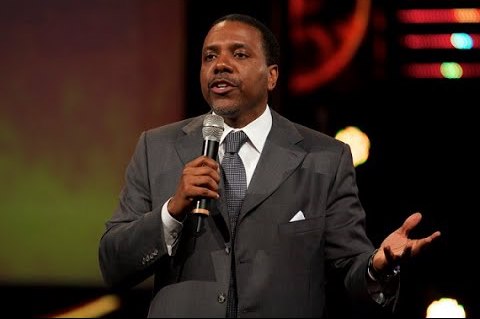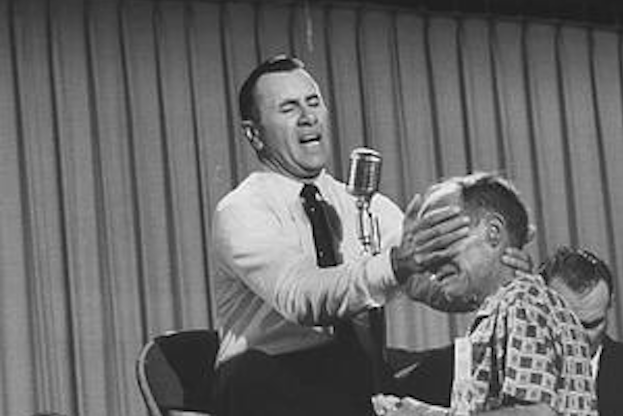
A new survey released by the Pew Research Center indicates a significant decline in the number of Americans who identify as Christians. The proportion of adults who identify as Christians in all major denominations of the faith fell from 78.4 percent in 2007 to 70.6 percent in 2014. The drop amounts to 5 million adults. Much of the decline is attributed to the growth of the ‘unaffiliated’ faithful, those who do not adhere to any ‘corporate’ label for their faith but are essentially religious free agents. This impulse is particularly strong among the millennial generation.
The findings of the Pew survey come at a time of great religious anxiety in America; as Islam phobia increases because many Americans make no distinction between the faith and extremists who abuse its teachings. The recent violence that erupted at an event held to promote cartoon caricatures of the prophet Mohammed, a sacred figure in Islam, and the claims by religious conservatives that Christianity is under attack helps to fuel the controversy over faith in the United States. The irony is that the survey is released against the backdrop of a major television production, ‘A.D.: The Bible Continues,’ airing on a major broadcast television network, NBC.
For the record, I am a Christian and was raised in a Christian household. My branch of Christianity is Methodism, Black Methodism to be exact, as a member of the African Methodist Episcopal Zion Church (AMEZ). One of three Black branches of American Methodism, along with the African Methodist Episcopal (AME) and Christian Methodist Episcopal (CME) denominations, Zion and its sibling denominations were formed in protest of the segregation of the white Methodist Episcopal Church. All three denominations were birthed in the era of slavery and legal segregation and historically were prominent voices in the Black liberation movement.
I am little surprised by the status of Christianity today in this country. Many who adhere to the faith are challenged to find anything Christ-like in the rituals, practices and rhetoric that dominate the Christian church in America. For a faith that is built upon the teachings of Jesus, the church today has become distant from the tenets of its savior and prophet, and is losing credibility among those searching for an other-than-worldly explanation for the otherwise unexplainable meaning of life. As the church is increasingly branded and marketed, and packaged in ‘mega wrap,’ the faithful who Jesus declared the true ‘church’ are becoming less invested in the institution of church and preoccupied with establishing a more personal religious experience.
 This shift cannot be fully explained by the seven-year period the Pew survey examines. And I do not believe it can be fully explained by demographic changes. Some it has to partially reflect the fatigue of the faithful. Over the years there have been numerous scandals and questionable practices by Christian leaders in this country that I believe has caused many to be repulsed with the notion of structured faith. It was in 1987 that televangelist Oral Roberts proclaimed that God would ‘call him home’ if he did not raise millions for his ministry. Roberts’ son, Richard, was forced to resign from a leadership position at Oral Roberts University in Tulsa, founded by his father, over accusations that he misappropriated institutional funds. One of the most spectacular religious scandals of the latter part of the 20th century was the fall of evangelicals Jim and Tammy Faye Bakker, and their ‘Praise the Lord’ (PTL) empire replete with theme park; a downfall that provided red meat for comics for years. Then there are the multiple cases of pedophilia that have rocked the Catholic Church and forced the Vatican to pay out millions to settle lawsuits against priests.
This shift cannot be fully explained by the seven-year period the Pew survey examines. And I do not believe it can be fully explained by demographic changes. Some it has to partially reflect the fatigue of the faithful. Over the years there have been numerous scandals and questionable practices by Christian leaders in this country that I believe has caused many to be repulsed with the notion of structured faith. It was in 1987 that televangelist Oral Roberts proclaimed that God would ‘call him home’ if he did not raise millions for his ministry. Roberts’ son, Richard, was forced to resign from a leadership position at Oral Roberts University in Tulsa, founded by his father, over accusations that he misappropriated institutional funds. One of the most spectacular religious scandals of the latter part of the 20th century was the fall of evangelicals Jim and Tammy Faye Bakker, and their ‘Praise the Lord’ (PTL) empire replete with theme park; a downfall that provided red meat for comics for years. Then there are the multiple cases of pedophilia that have rocked the Catholic Church and forced the Vatican to pay out millions to settle lawsuits against priests.
How can there not be a crisis of confidence in Christianity? Just recently mega church pastor Creflo Dollar became the object of ridicule for suggesting to his congregation that he needed a new $65 million luxury jet to spread the message to the masses. While Jesus called upon his followers to be ‘fishers of men,’ Dollar apparently sees his role quite differently. And he is not alone. Just surf through your cable television lineup and there is no shortage of ‘messengers,’ ‘Apostles,’ ‘Prophets,’ ‘Bishops’ and ‘Pastors,’ with many unapologetic for their wealth and boastful of their ‘prosperity.’ Sadly, it is the followers who fund the excesses and abuses, and who then struggle to reconcile the claims of the supposed prophetic with the profane.
For Black Christians this shift could signal a disengagement from an institution that has been prominent during period of Black ascension in America. If African-Americans also mirror the trend illustrated in the survey, it could confirm the weakening of the Black church as a political and social force in our nation. The Black church has provided much of the institutional glue for social change movements at the community and state level; acting as a principal advocate for equality and social justice.
So, is Christianity dying? Absolutely not. I do believe though, it is going through a process of reclamation and renewing. In other words, the masses might be ‘seeing the light.’ Much like the power struggle of the early believers, the Disciples and Apostles, it is the people, the true church, who will have to redefine the tenets of the faith. In many ways, it is the same struggle that I see forthcoming in the political arena as party identification will increasingly matter little to voters. For the faithful, it is becoming not so much a question of a label but the practical application of beliefs.
Walter Fields is Executive Editor of NorthStarNews.com.












